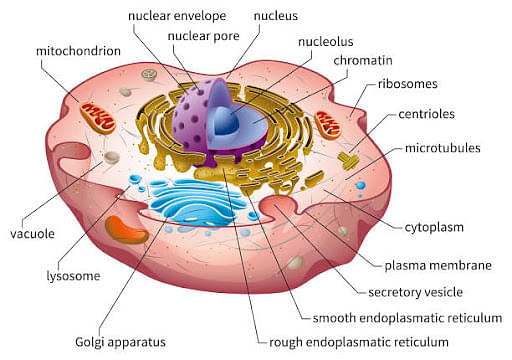Question:
Which one of the following useful organisms is not a part in production of curd/yoghurt?
Which one of the following useful organisms is not a part in production of curd/yoghurt?
Updated On: Aug 16, 2024
- S. thermophilus
- Lactobacillus bulgaricus
- Acetobactor aceti
- Streptococcus lactis
Hide Solution
Verified By Collegedunia
The Correct Option is C
Approach Solution - 1
Yoghurt/curd consists of pasteurised homogenised milk. In yoghurt production Streptococcus thermophilus, S. lactis and Lactobacillus bulgaricus are inoculated. The Acetobactor aceti is used in commercial produciton of acetic acid.
Was this answer helpful?
3
2
Hide Solution
Verified By Collegedunia
Approach Solution -2
- Curd is produced through the fermentation process in milk.
- This process involves the use of bacteria such as S. thermophilus, Lactobacillus bulgaricus, and Streptococcus lactis.
- Initially, a batch of bacterial culture is introduced into fresh raw milk.
- Subsequently, under conditions of elevated temperature, the bacterial colony proliferates within the milk, leading to the formation of curd.
- Acetobacter aceti, although a beneficial bacterium, is not involved in the production of curd. Instead, it is utilized in the production of vinegar.
- Therefore, it is an incorrect option in the context of curd production.
Was this answer helpful?
0
0
Top Questions on Cell: the unit of life
- Which organelle in a eukaryotic cell is primarily responsible for synthesizing proteins destined for secretion?
- MHT CET - 2025
- Biology
- Cell: the unit of life
- Which organelle is primarily responsible for producing ATP in a cell?
- MHT CET - 2025
- Biology
- Cell: the unit of life
- Which of the following organisms or organelles contain 70S ribosomes?
- MHT CET - 2025
- Biology
- Cell: the unit of life
- What is the movement of cytoplasm within a cell called?
- MHT CET - 2024
- Biology
- Cell: the unit of life
- Given below are two statements: Statement I: Cell wall is freely permeable.
Statement II: Plasma membrane is selectively permeable.
Choose the correct answer from the options given below with reference to the structure of root hair:- MHT CET - 2024
- Biology
- Cell: the unit of life
View More Questions
Questions Asked in AIIMS exam
- The element Neodymium (Nd) belongs to the 4f series. What is its atomic number?
- AIIMS - 2024
- Modern Periodic Law And The Present Form Of The Periodic Table
- The correct increasing order of energy of orbitals in a hydrogen atom is:
- AIIMS - 2024
- Atomic Structure
- Which of the following is a globular protein?
- AIIMS - 2024
- Biomolecules
- Given that the surface charge density on a sphere is 200 μC/m2, what is the electric field at the surface of the sphere?
- AIIMS - 2024
- Electrostatics
- Which of the following is a crystalline solid?
- AIIMS - 2024
- The solid state
View More Questions
Concepts Used:
Cell: The Unit of Life
- A cell is derived as the functional and structural unit of life. Every cell is surrounded by a cell membrane that dissects the external and internal environments of the cell. The interior environment of a cell is called the cytoplasm.
- It carries cellular machinery and structural elements. The nucleus is present in the center of the cell, which includes all the hereditary information of an organism. Some of the molecules present in the cell are protein, carbohydrates, starch, and sugar.
Read More: Fundamental Unit of Life: Cell
Parts of Cell:
The different parts of a cell and their functions are as follows:
- Cell Membrane
- Cell Wall
- Nucleus
- Cytoplasm
